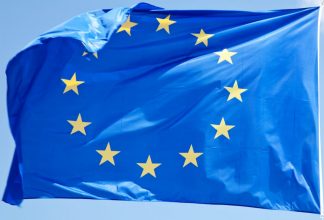Report by the Legal and Civic Education Council of Cuba on the European Union’s Policy regarding Cuba
Letter #3 by the Legal and Civic Education Council of Cuba.
In July 2019, Civil Rights Defenders invited Cuban human rights defenders and civil society organisations to contribute with texts on how the European Union should work towards Cuba. The first contribution comes from the Legal and Civic Education Council of Cuba.
Report by the Legal and Civic Education Council of Cuba on the European Union’s Policy regarding Cuba
Civil society’s proposals
The Cuban state has tried to strengthen its relationship with the European Union (EU) while concealing the reality endured by a significant portion of the people of Cuba, given that the periodic reports provided to the EU do not reflect the significant problems affecting Cuban civil society.
The Cuban state always issues reminders that it is a democratic country; however, it has only one political party and whoever is against it can be arrested and sent to prison.
It is true that the Cuban state provides free education, but subject to the condition of indoctrination by the communist system.
It is true that the Cuban state provides free health care, but not with the service and quality all human beings deserve.
In its reports, the state reflects that it supports people with disabilities; however, people with disabilities do not receive enough assistance for their support.
In Cuba, the right to assemble and to freely associate are prohibited; a person can only belong to mass organisations that have been founded and monitored by the state’s system.
Reports authored by human rights organisations, such as EYE ON CUBA, the Cuban Human Rights Observatory, and the Institute on Race and Equality, have documented the impunity with which the Cuban state has committed human rights violations against its citizens who seek to move forward, outside its system.
Beyond its cooperation with Cuba, the EU must consider the values expressed in Article 2 of the Treaty on European Union, which are respect for human dignity, freedom, democracy, equality, and Rule of Law, with respect for human rights being one of the EU’s fundamental obligations in the application of policies and programmes.
Given that the EU is a firm and committed human rights advocate beyond the borders of the Union (and on several occasions has called for countries to apply the Universal Declaration of Human Rights and other international treaties in matters related to human rights), and it seeks to ensure that all its international relations, including trade and assistance, adhere to its principles in matters pertaining to human rights; it must acknowledge that every cooperative effort with Cuban organisations related to the government and to Cuba’s Communist Party are solely for the benefit of the Communist Party and not for the benefit of civil society.
Recommendations:
- The EU must demand and ensure that the Cuban state cooperates with Cuban civil society, openly promoting democratisation and respect for human rights by creating cooperative agreements that are authorised by both parties.
- The EU must focus the political and cooperative dialogue primarily on respect for human rights by requiring that the state is truthful in its reports and the ratification of agreements and treaties.
- The EU must demand that the Cuban state legalise independent civil society organisations, granting legal status to allow non-governmental organisations that support a majority of civil society to exercise their right to associate.
- Given the foregoing, the EU must analyse relations with the Cuban state in depth, demanding that it respect international commitments in connection with human rights.
- It is recommended that the EU requires the Cuban state to reform its national legislation, and not to censure or harass independent organisations based on their pacific approaches to action.
- Cuba’s infrastructure deteriorated during its revolutionary process and a significant portion of the population, primarily young people, emigrated due to shortages and the lack of opportunies.
- The EU must demand forms of empowerment for civil society, not for state companies, the majority of which belong to the Armed Revolutionary Forces.
- The EU must demand that the Cuban state does not harass or persecute independent civil society any further for its forms of thinking and acting pacifically, respecting the right to freedom of expression and opinion.
José Ernesto Morales Estrada, Representative of CJIC
About the Legal and Civic Education Council of Cuba
The Legal and Civic Education Council of Cuba (Consejería Jurídica e Instrucción Cívica de Cuba –CJIC) is and independent non-profit and non-governmental Cuban organisation, which defends and promotes human rights as a social alternative to achieve the reestablishment of democracy and rule of law in Cuba. It is comprised of independent attorneys and its mission includes providing free legal assistance to Cuban citizens who have not received help from the Cuban state. It also seeks to contribute to the legal and civic education of society in general, based on study programs offered through classes and workshops.

